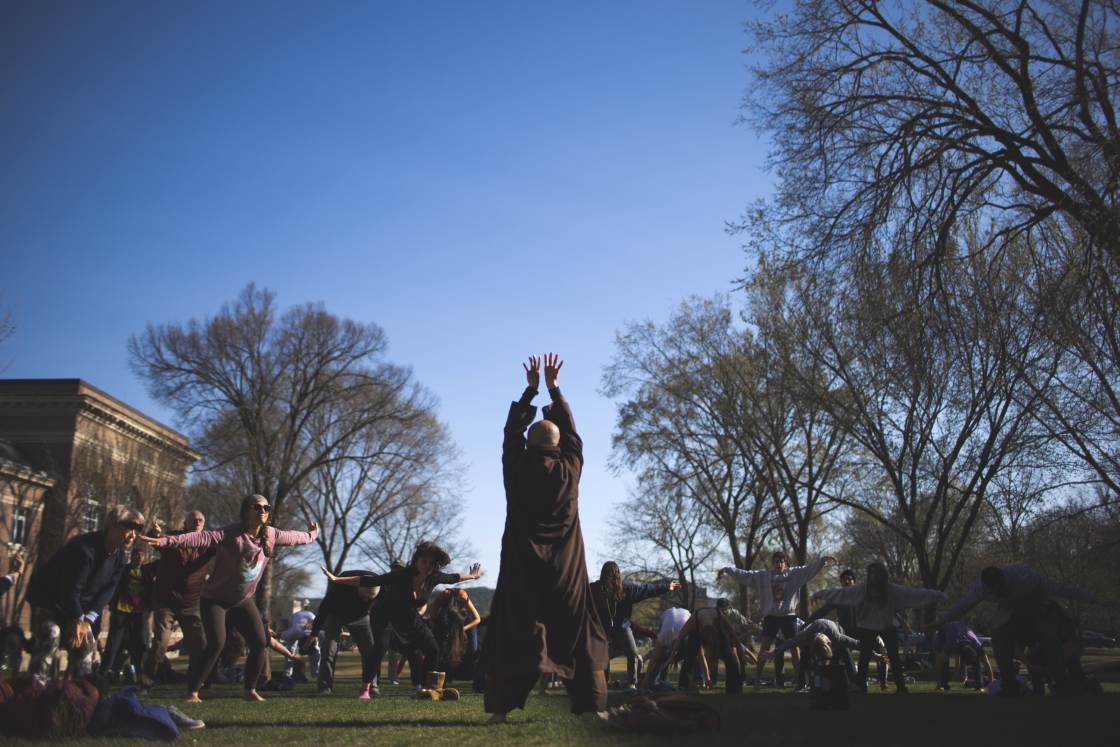The writer, activist, and professor Maya Angelou, who died May 28 at 86, believed in the power of poetry to transform the world.
When she spoke in Hanover in 2002 for the 50th anniversary of the William Jewett Tucker Foundation, in an address that mingled autobiography, history, and poetry, she challenged her Dartmouth audience to make the world a better place, to be “rainbows” to those around them.
“Ms. Angelou's words to our students rang true in 2002 and continue to ring true in 2014,” says Theresa M. Ellis ’97, Tucker Foundation interim dean. “Her life was an example of how to leave the world a better place and of how to act with a sense of justice—something that our students at Tucker try to do each day. We join others in celebrating her life and send our condolences to her family and her friends.”
“In her monumental 1969 autobiography, I Know Why the Caged Bird Sings, Angelou taught Americans once again that truth and beauty await our discovery in the examined life,” says Michael Chaney, vice chair of the Department of English.
“When Angelou reminded us that, ‘Words mean more than what is set down on paper. It takes the human voice to infuse them with shades of deeper meaning,’ she was articulating what was already manifest in every thought she ever put words to: Art, like politics, has to proceed from the human, the subjective, and the embodied in order for it to have the deeper meaning that only relationality can supply,” Chaney says.
Angelou read her poem On the Pulse of the Morning at the 1993 inauguration of President Bill Clinton. In 2011, President Barack Obama awarded Angelou the Medal of Freedom in a White House ceremony. She was the Reynolds Professor of American Studies at Wake Forest University at the time of her death, a position she had held since 1982.
The Tucker Foundation, founded by Dartmouth President John Sloan Dickey in 1952, educates Dartmouth students for lives of purpose and ethical leadership, rooted in service, spirituality, and social justice.
